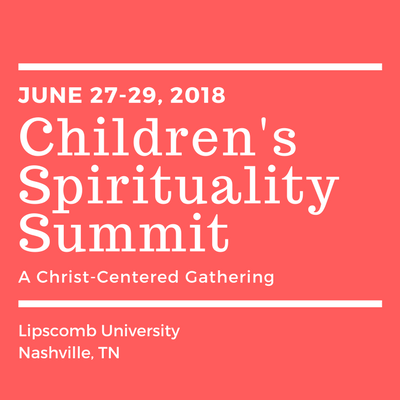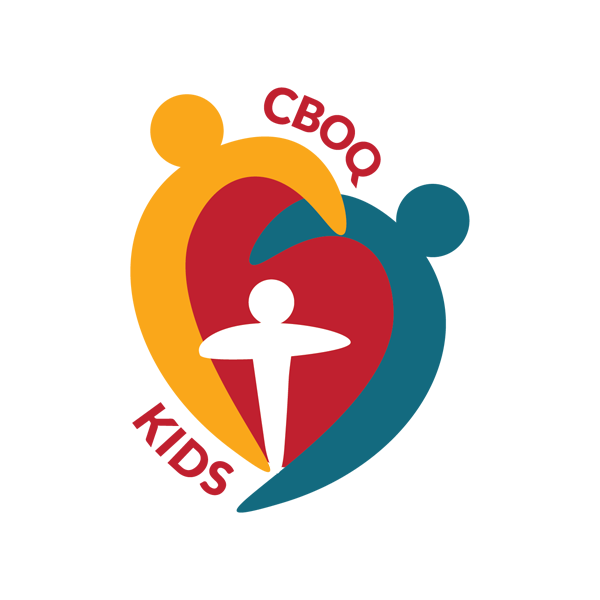
Initial thoughts/overview of the Children’s Spirituality Summit 2018
I had the privilege of spending the last few days at Lipscomb University in Nashville, Tennessee for the Children’s Spirituality Summit. It has been an incredibly enriching experience for me as I have listened to and dialogued with scholars, researchers, practitioners and pastors about a variety of issues, research and current trends regarding children’s spirituality. The conference ended about an hour ago and as I sit waiting for my shuttle to the airport, my brain is full with thoughts, reflections and lots of questions! I will do my best to share a brief overview of my last few days now and over the next few weeks continue to expand as I reflect more deeply on the different areas I have been challenged with.
Holly Allen, chair of The Children’s Spirituality Summit Board began our time by sharing a current working definition of children’s spirituality:
Children’s Spirituality can be defined as a quality present in every child from birth out of which children seek to establish a relationship with themselves; others; the world and God.
She went on to share that children’s ministry is about nurturing children’s spirituality by assisting children in their relationship with themselves; others the world and God. I wonder what your thoughts are? How would you define children’s spirituality and how does that inform your children’s ministry?
We continued our first evening by hearing from 2 of our 3 plenary speakers. Dr. Scottie May, Professor Emerita at Wheaton College, a wealth of wisdom and experience in children’s ministry that spans decades took us on a journey through the past 75 years or so of children’s ministry and provided a helpful overview of patterns for three 25 year periods. She highlighted the contributing characteristics, historical events and the dominant philosophy that shaped ministry approaches in each period. One quick take away for me is rather then seeing each period being replaced by the next, to see it as building upon one another. We were challenged to critically retrieve what was good in each period. How do we integrate and restore what was good in each period and develop ministry experiences that combine the ‘good’ of all three? She shared metaphors for the child, the teacher, the subject and the context of each period. The reality is we are really moving into a new era and I am struck with wondering, what are the metaphors we will use going forward? Stay tuned for more thoughts on this!
Our second plenary speaker, Dr. Steve Kang from Trinity Evangelical Divinity School addressed some of the current challenges facing children’s spiritual formation in today’s secular age by giving us a lot to consider in proposing 3 turns towards the future of Children’s Spirituality. It was certainly a lot to consider and I will simply let you wonder and consider the three areas he proposed:
- A spiritual, theological turn in approaching children’s spirituality.
- A Kingdom, ecological turn in realizing children’s spirituality.
- An onthogonal epistemological turn in fostering children’s spirituality.
One quick take away for me is the recognition that we are theologians! Maybe not academic theologians but it is so critical to understand that we are doing theology as we minister with children!
Our second plenary session we heard from our third speaker, as well as Scottie and Steve as they each shared some thoughts on the spiritual formation of children in churches, in contemporary families and in secular settings. Following this hour of introduction to these 3 areas, we were given the opportunity to choose one area to go discuss with each respective speaker in depth for an hour.
In addition to the plenary session we had the opportunity to attend 4 workshops over the course of the summit, which included both practical ministry ideas as well as academic paper presentations. There was an incredibly diverse and rich offering of topics!
2 other aspects that were part of this summit included Pecha Kucha presentations and Taste and See Sessions. If you are not familiar with Pecha Kucha presentations like me until yesterday this is a presentation style. In a nutshell it is presenting on a topic by selecting 20 images that are in a powerpoint presentation. Each image is displayed for 20 seconds while the presenter speaks. It is an image driven presentation in 6 minutes and 20 seconds! We had 6 Pecha Kucha presentations on a variety of different topics. At the conclusion of each presenter, a 1 minute countdown came up on the screen for individual, silent reflection, followed by a 3 minute timer for discussion around the table and then we moved on to the next presenter. It was a whirlwind of information but an incredible power presentation style!
The Taste and See Sessions were 20 minute participatory experiences in which we had the opportunity to choose 3 out of 6 options to experience. We were invited to participate in different experiences as a child and learn about some innovative approaches to ministry through hands on engagement rather than listening to descriptions of each.
Our final plenary session was a panel discussion with our plenary speakers around the question: Imagine the Future: Where do we go from here?
I have had an incredibly enriching experience these last few days and I leave here ‘full’! As I spend these next weeks digesting all that I have taken in I will continue to share more thoughts, questions and reflections.

+ There are no comments
Add yours